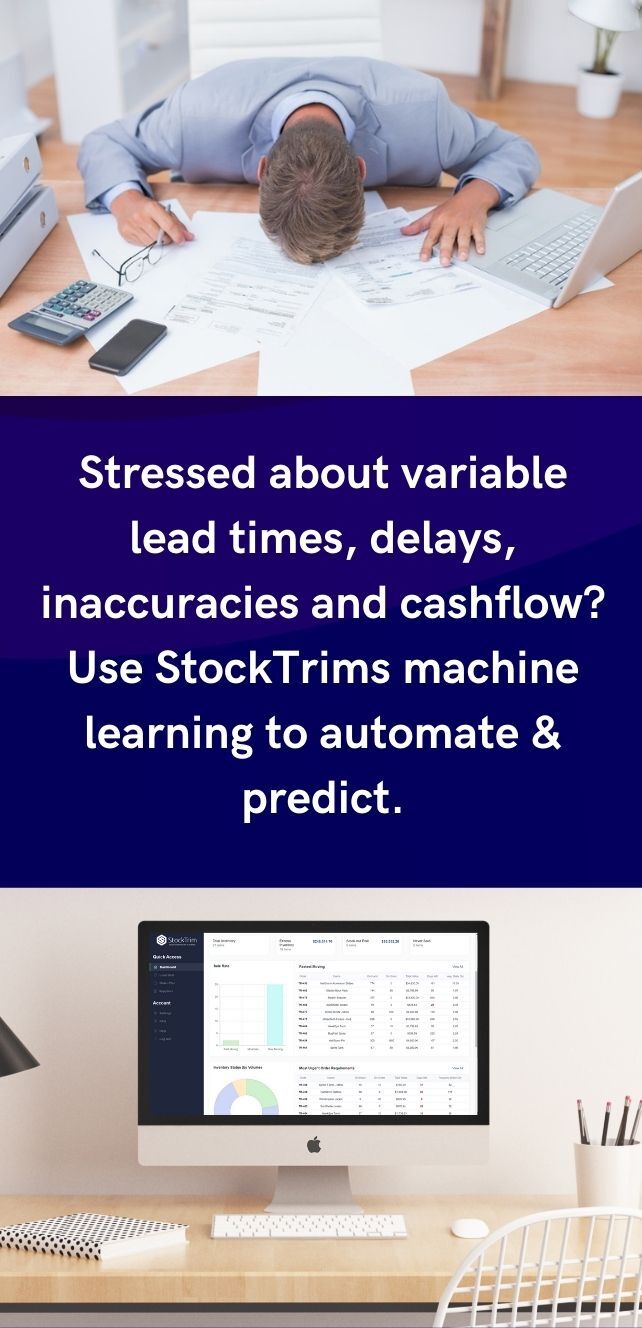The issue of inventory planning is not new. It has been around ever since humans started trading things. With the trade and movement of products comes the inevitable situation where demand is mismatched with supply.
Of course, too much demand and not enough supply means lost sales and grumpy customers!
With too little demand vs supply, the merchant is sitting on aging stock with their capital tied up until they can find more customers by extra promotion or discounting. Very costly!
Inventory planning and control has always been a concern for a business, and in the early days the methods of calculating this were fairly basic. However, there is no doubt the business that could run a fully optimized inventory where they always had it ‘just right’ was a much more successful operator and likely to outlast their competition.
As the years have gone by, computers along with the software that came with them were used to keep a record of stock. The spreadsheet was invented in 1979! Suddenly there was an easier way to keep checks and balances. Inventory management software emerged, initially created by large companies who had a requirement to measure what they had – their incomings and outgoing. It is a basic requirement of any business to know what stock levels they have.
But what about matching this with demand? Demand planning and inventory forecasting is an essential part of stock control. Its’ all very well knowing what you have, but what about what you need? Corporates solve this by hiring software developers to create bespoke programs. This still happens to this day and many of these systems cost tens to hundreds of thousands of dollars to create.
They then need to be continuously changed, often falling behind the needs of that organisation.
Big multinational businesses can afford to dump a load of cash into solving the complexities around inventory forecasting and demand planning software.
But what about the SMB/SME’s (Small and Medium Businesses)?
Well, remember those spreadsheets that were invented in 1979? They are still using them!
Don’t get me wrong, some of these Excel Spreadsheets used for Inventory Planning are impressive. The owner or product buyer will usually download an Excel file out of their Inventory Management/Recording Software, apply some formulas and decide if that’s good enough to rely on to place their orders for the next weeks or months.
There are some problems with this. 90% of spreadsheets used in this way carry errors which transfer through into purchasing and result in over or under ordering. It’s also relatively manual, and still heavily relies on the insight of the person operating this critical part of a business. It is often messy and time consuming.
There is good news. The software that big businesses had access to – the automation, machine learning and big data analysis has made its way to the SMB sector. The bad news is that business owners are generally unaware that this is easily accessible anywhere you have an internet connection. Previously, you had to buy some software, install it, get some people to come and train you, have manuals and an in-depth onboarding session and more meetings etc, etc.
Times have changed. Smart software can be bought on subscription via a cloud-based download. The software reads your inventory data, dashboards it, shows you where you are doing well or where you are in danger, then recommends purchasing plans based on your lead times, locations, and seasonality in order to get a full optimized inventory. Of course, you are welcome to oversee and check what the algorithms project, but using AI they actually get smarter over time as they read more and more of your stock behaviours.
In addition, this software has been designed not for data scientists, but for the average business owner who just wants clean inventory and happy customers.
You see the core issues of stock control have not changed, but the amount of data and speed of business has. The data is no use if it is not compiled, extrapolated, and projected. SMB owners don’t have time for this. Automation is the key to creating operational efficiencies around time, cashflow and profit. Business owners need to keep up.
StockTrim helps businesses all around the world get on top of their inventory planning and control, and literally saves businesses from calamity. Poor stock control is cited by the SBA as the 4th biggest killer of SMB’s in America (this figure is likely to be similar globally).
So, in that sense, inventory planning SaaS like StockTrim literally is a lifesaver.


